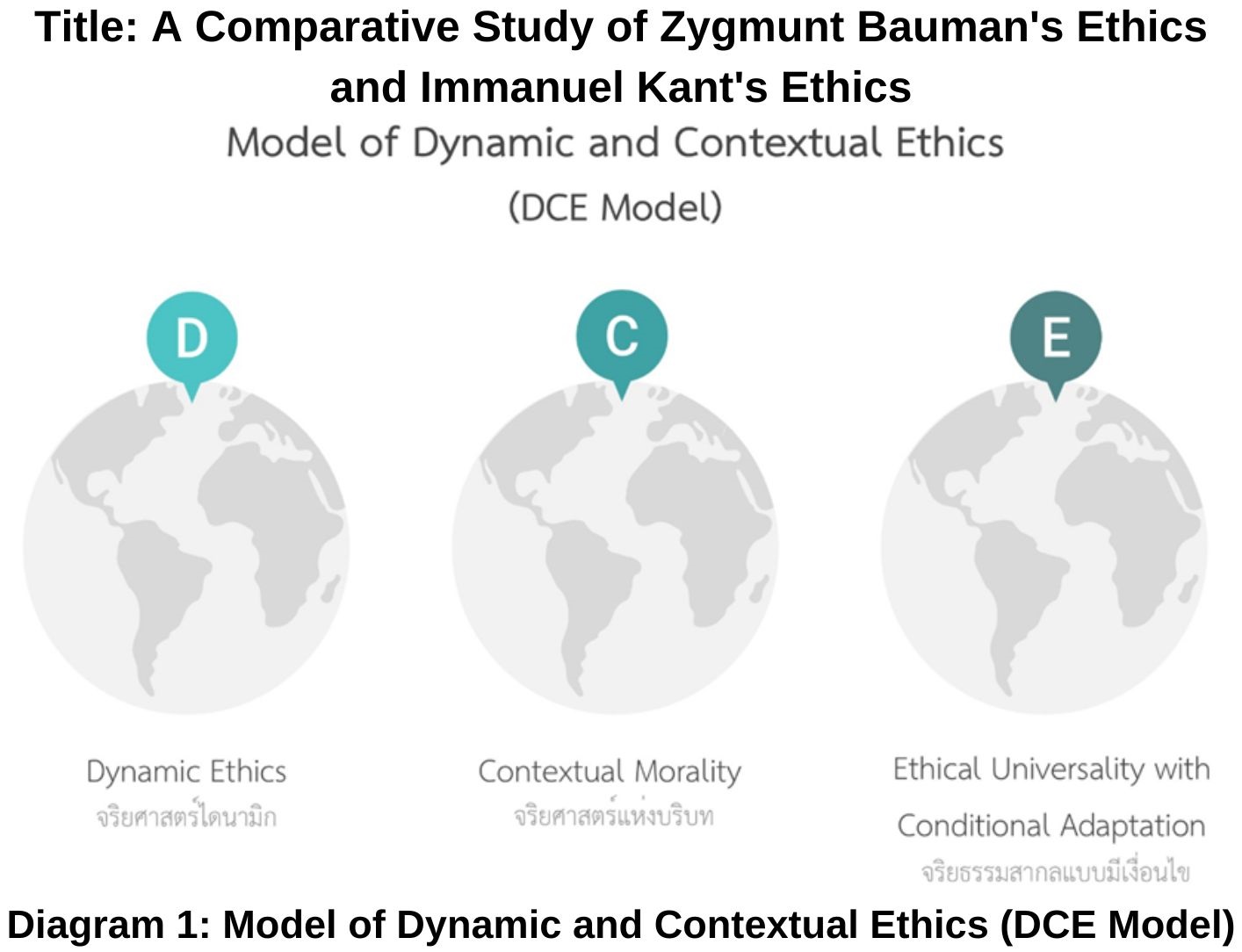A Comparative Study of Zygmunt Bauman's Ethics and Immanuel Kant's Ethics
Keywords:
Ethics, Zygmunt Bauman, Postmodern, Immanuel KantAbstract
This study employs a qualitative research approach with the objective of analyzing and comparing the ethics of Immanuel Kant and Zygmunt Bauman. The findings reveal that Kantian ethics, which is a form of deontological ethics, emphasizes universal moral principles and relies on reason as its foundation. Kant asserts that a morally right action must be capable of becoming a universal law applicable to everyone. While this approach provides a clear moral standard, it has limitations in addressing the complexities of modern society. In contrast, Bauman's ethics prioritize responsibility toward others and focus on moral relationships rather than adherence to universal rules. Bauman argues that the modern world is characterized by uncertainty ("liquid modernity"), necessitating a flexible and context-sensitive ethical approach. The advantage of this perspective is its ability to address complex moral dilemmas effectively; however, it lacks clear criteria for determining right and wrong. This study leads to the development of the Dynamic and Contextual Ethics Model (DCE Model), which integrates Kantian and Baumanian ethics. The model employs Kant’s moral principles as a universal ethical framework while utilizing Bauman’s ideas as a tool for assessing specific contextual situations. This model has potential applications in ethical policymaking, human rights, artificial intelligence technology, and business ethics.
References
Bauman, Z. (1993). Postmodern ethics. Oxford, UK: Blackwell.
Bauman, Z. (2000). Liquid modernity. Cambridge, UK: Polity Press.
Beck, U. (1992). Risk society: Towards a new modernity (M. Ritter, Trans.). London, UK: Sage Publications.
Habermas, J. (1990). Moral consciousness and communicative action (C. Lenhardt & S. Weber Nicholson, Trans.). Cambridge, MA: MIT Press.
Kant, I. (1785/1997). Groundwork of the metaphysics of morals (M. Gregor, Trans.). Cambridge, UK: Cambridge University Press.
Kant, I. (1788/1997). Critique of practical reason (M. Gregor, Trans.). Cambridge, UK: Cambridge University Press.
Korsgaard, C. M. (1996). Creating the kingdom of ends. Cambridge: Cambridge University Press.
Levinas, E. (1969). Totality and infinity: An essay on exteriority (A. Lingis, Trans.). Pittsburgh, PA: Duquesne University Press.
MacIntyre, A. (1981). After virtue: A study in moral theory. Notre Dame: University of Notre Dame Press.
Mill, J. S. (1863). Utilitarianism. London, UK: Parker, Son, and Bourn.
Nussbaum, M. (2001). The fragility of goodness: Luck and ethics in Greek tragedy and philosophy. Cambridge, UK: Cambridge University Press.
Nussbaum, M. (2006). Frontiers of justice: Disability, nationality, species membership. Cambridge, MA: Harvard University Press.
Plato. (380 B.C./1997). Republic (B. Jowett, Trans.). Oxford, UK: Clarendon Press.
Plato. (380 B.C./1997). Republic (B. Jowett, Trans.). Oxford, UK: Clarendon Press.
Rawls, J. (1971). A theory of justice. Cambridge, MA: Harvard University Press.
Rorty, R. (1989). Contingency, irony, and solidarity. Cambridge, UK: Cambridge University Press.
Sen, A. (1999). Development as freedom. Oxford, UK: Oxford University Press.
Taylor, C. (1989). Sources of the self: The making of the modern identity. Cambridge, MA: Harvard University Press.
United Nations. (1948). Universal Declaration of Human Rights. Retrieved from https://www.un.org/en/about-us/universal-declaration-of-human-rights.

Downloads
Published
How to Cite
Issue
Section
License
Copyright (c) 2025 Institute of Sufficiency Journal

This work is licensed under a Creative Commons Attribution-NonCommercial-NoDerivatives 4.0 International License.



